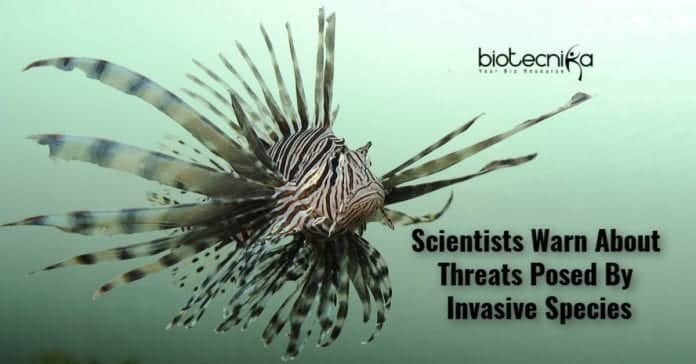A professor at the University of Rhode Island and few others from around the world warn about the increasing threats posed by invasive species. Urgent action is required to detect, control, and prevent invaders at both global and local levels, says a study published in the journal Biological Reviews.
Animals, plants, and microbes, accidentally or intentionally introduced by people into areas where they do not naturally occur are called alien species. Many of them cause harmful effects on human health, economy, and environment, thriving and spreading widely.
A team of scientists from 13 countries across Asia, Europe, Africa, Australasia, North, and South America conducted the study. More than 18,000 alien species are currently listed around the world, and the number is rapidly increasing.
According to a URI associate professor, Laura Meyerson, the increase in the number and variety of pathways along which species spread and the increasing volume of traffic associated with those pathways is the major reason behind escalation in biological invasions.
As per the 2017 analysis of global extinctions, alien species contributed to 33 percent of terrestrial and freshwater animal extinctions and 25 percent of plant extinctions. And more than $100 billion annual environmental losses were reported in the
UK, the US, India, Brazil, and South Africa, due to invasive species.The threats by invasive species are getting worsened due to global changes like climate change, international trade, and land-use change. For example, due to global warming, species transported via shipping can now thrive in new regions, and the permanent opening of the Arctic Ocean is allowing marine species to move between the Pacific and Atlantic Oceans.
The research paper was published in association with World Scientists’ Warning to Humanity: A Second Notice, an initiative calling for urgent change in the governance of Earth and the life on it. The first notice was published in 1992, warning humanity was on a collision course with the rest of the natural world, by 1,700 eminent scientists from around the globe. But, even after that humanity failed to make sufficient progress and the problems worsened, according to a follow-up evaluation conducted after 25 years.
However, the biological invasions can be mitigated and managed, say the authors of the new paper. They have suggested a few approaches. For example, the introduction of strict controls over borders, including detector dogs and X-ray machines, has reduced the invasion of fungal plant pathogens to New Zealand.
The problems associated with biological invasions become clearer, as our knowledge about invasive alien species increases, said Professor Petr Pyšek of the Czech Academy of Sciences and Charles University in Prague.
Biosecurity is a national priority for countries like New Zealand, Australia, and South Africa. But to tackle the threats posed by invasive species effectively, the action is needed widely at both international and national levels.



























